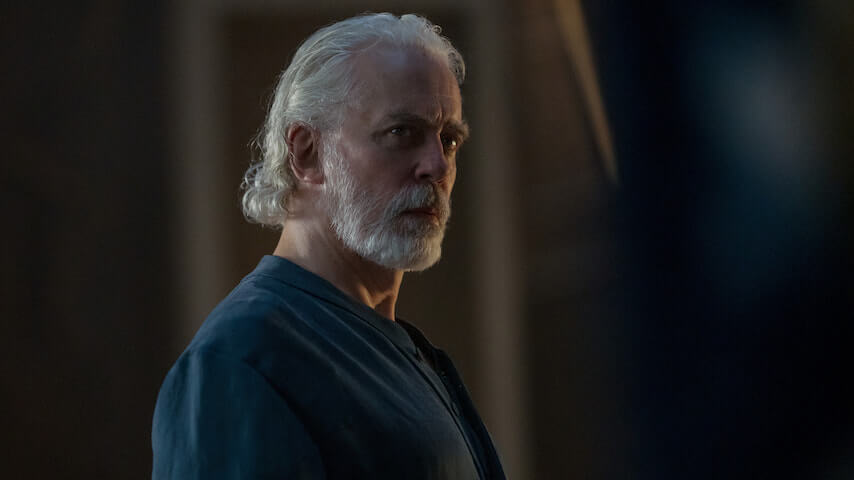Foundation is as weighty, high-stakes, and oddly captivating as ever
In season three, Apple TV+'s sprawling sci-fi epic gets a boost thanks to a villainous telepath.
Photo: Apple TV+
Foundation isn’t as buzzy as its siblings on Apple TV+, like Severance, with its surreal, retrofuturistic offices, or as accessible as the more straightforward, post-apocalyptic bunker drama Silo. The casual viewer may, in fact, be overwhelmed by the scope of this sprawling sci-fi epic, which explores the collapse of an interstellar civilization in a far-flung future over hundreds of years and features dozens of characters. It is weighty, ambitious stuff.
But those willing to sit through this surprisingly imaginative adaptation of author Isaac Asimov’s dense and cerebral series of stories and novels will find a well-produced, highbrow meditation on the limits of human potential. And like any good science-fiction tale, it’s a commentary on the concerns of the present day. (In Foundation, a decadent empire is slowly falling apart. Interpret that as you may.)
The first two seasons uneasily balanced space-opera fantasy with intergalactic realpolitiks, and even though there were confusing time jumps and shocking twists, the show was never dull. At times, it was beautiful and melancholy, especially for a series set on fantastical new planets. Other times, it felt crammed, like there were often too many plotlines. But in the third season, the story has been streamlined, as new heroes and old friends finally confront a long-teased run-of-the-mill bad guy with simple wants and needs.
But the best part of these upcoming episodes is actor Terrence Mann’s performance as Brother Dusk, the oldest of a triumvirate of clones who have ruled a vast Galactic Empire for centuries. (True theater kids will recognize Mann as the original Javert from Broadway’s Les Misérables.) Known as the Genetic Dynasty, the three men who run the galaxy are lab-grown copies of Emperor Cleon I, an extremely Catholic-looking space monarch. Together, they form a formidable threesome, each referred to by their subjects simply as Empire. Along with Dusk, there’s Brother Dawn, the youngest, whose role is to learn. He was decanted from a tube. Meanwhile, Brother Day sits in the middle throne and rules. If something were to happen to him, like an assassination, his memories would simply be uploaded to another clone, which is also decanted. Dusk’s role is to advise and to prepare for “ascension,” which is a sanitized way of saying being euthanized. Every graying Cleon is led to a scheduled slaughter. But this season, the current Brother Dusk wants to live, begging and maneuvering for more time.
The ups and downs of the Genetic Dynasty are still the most entertaining storyline in all three seasons of the show. The rituals of their day-to-day lives and the subtle differences between each Cleon over the centuries and seasons make for compelling drama. Every new season presents a new trio of Caesars. Since Foundation spans a millennium, the Cleons are one of the only constants, along with their sinister advisor/bad mommy Demerzel, the only survivor of an ancient war between humans and robots. Laura Birn gives Demerzel a robot’s precision but also a strange, haunting quality that suggests artificial intelligence can be capable of sorrow.
The Genetic Dynasty itself was invented for the show, and it’s one of many small ways the creative team freshened up Asimov’s dense and cerebral source material. This was no easy task: These books are real doorstoppers, with thick prose and dated gender stereotypes, but they’re undeniably influential tomes, informing Frank Herbert’s tale of Galactic entropy, Dune, and Star Wars, among other works.
It’s just that Asimov’s story about a brilliant mathematician who can calculate the future isn’t as much fun as the three emperors who doubt the forecasts. Which brings up Dawn (Cassian Bilton), who is given more to do this season. He’s having to step up and fill a void left by Lee Pace’s Day, who is busy inhaling exotic drugs, growing out his hair, and all but abdicating his throne. Usually towering and regal, Pace is having fun here as a king rejecting his crown.
 Keep scrolling for more great stories.
Keep scrolling for more great stories.
